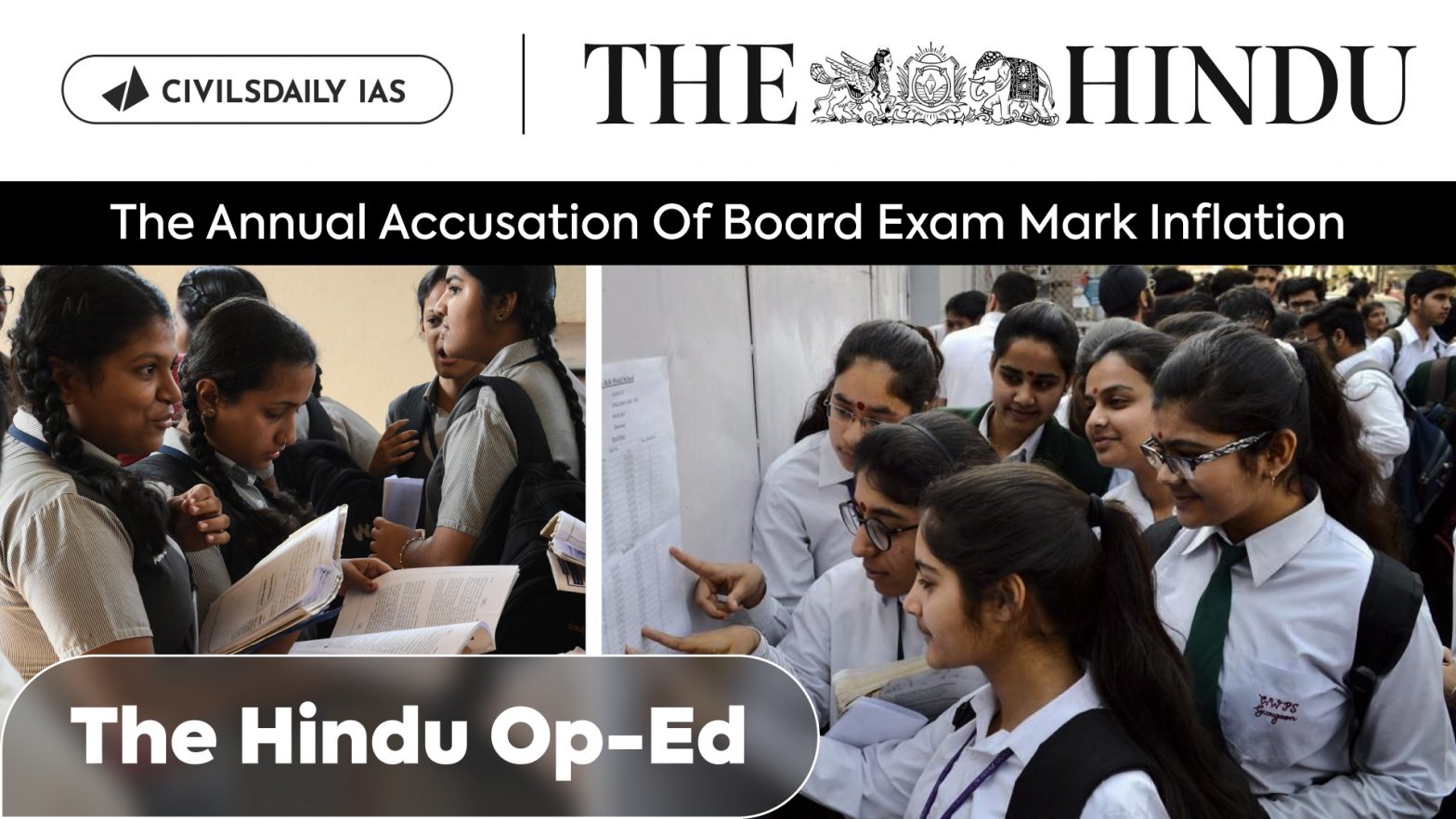| PYQ Relevance: Q The quality of higher education in India requires major improvement to make it internationally competitive. Do you think that the entry of foreign educational institutions would help improve the quality of technical and higher education in the country? Discuss. (UPSC IAS/2015) Q Professor Amartya Sen has advocated important reforms in the realms of primary education and primary health care. What are your suggestions to improve their status and performance? (UPSC IAS/2016) Q National Education Policy 2020 conforms with the Sustainable Development Goal-4 (2030). It intends to restructure and reorient education system in India. Critically examine the statement. (UPSC IAS/2020) Q The Right of Children to Free and Compulsory Education Act, 2009 remains indadequate in promoting incentive-based system for children’s education without generating awareness about the importance of schooling. Analyse. (UPSC IAS/2022) |
Mentor comment: The consistently high pass rates, variations across boards, impact on higher education, and CBSE’s own concerns have kept the topic of mark inflation in the news spotlight, with calls for urgent exam reforms to restore credibility to the system. The perception of mark inflation has led to increased demand for entrance exams for college admissions. It also forces colleges to raise cut-offs, making it harder for diligent students to get admitted. The Former Education secretary Anil Swarup had attempted to abolish CBSE’s marks moderation policy in 2017 to check inflation but faced opposition from stakeholders. Experts argue that ending moderation and reforming exams is crucial to address the issue.
Let’s learn!
__
Why in the News?
The Central Board of Secondary Education (CBSE) recently issued an advisory to its affiliated schools, urging them to reevaluate practical exam assessment procedures.
- A significant variation was detected between theory and practical marks for over 50% of students in around 500 CBSE schools.
| Present status of School Boards in India: Indian school boards face allegations of inflating marks for classes 10 and 12. • High Pass Percentages: Evidence includes high pass rates—85% for class 10 and 82% for class 12 in 2023. • Students scoring above 60%: Approximately 61% of class 10 students and 56% of class 12 students scored over 60%. • Mark Compression: High clustering of marks at the top is referred to as mark compression, related to mark inflation. What are the impacts of such marks inflation? • Impact on Education Credibility: Both mark inflation and compression undermine the credibility of the education system. • Consequences for Students: These practices hinder student preparedness for higher education and the job market. • Demand for Entrance Exams: The perception of inflated marks has increased demand for higher-education entrance examinations. |
What are the current disparities in the Indian School Education System?
- Lack of a Standardized Measure: The present examination curriculum pattern makes it difficult to assess the relative academic credentials of students certified by different boards.
- For example, in both secondary and higher secondary examinations, the proportion of students securing above 60% was lower than the national average in several states.
- However, this does not necessarily mean that students in other states performed better on a comparable scale.
- Lack of Corrective Measures: Marks are supposed to reflect a student’s academic knowledge and skills, but comparing them with standardized national-level tests like NEET and JEE is problematic.
- These tests are designed as elimination processes for admission to specific higher education programs, and not to evaluate subject knowledge as per the prescribed curriculum.
- Moreover, not all class 12 students appear for these entrance exams, and those who do usually undergo special coaching which incurs huge costs.
- Lack of Policy Suggestions: The National Achievement Survey (NAS) conducted by NCERT for a sample of students annually is scientifically designed but fails to serve as a benchmark for studying mark inflation.
- There is little scope to connect estimated scores with factors like curriculum design, school efficiency, and teaching-learning processes.
- Need for Accountability in the System: The current opaque system leads to various issues, necessitating transparency in all processes, from question paper setting to marking and result publication.
What can be done for the System’s Revaluation and Enhanced Accountability?
- Establish a standardized system: The govt needs to provide resources outlining how learning outcomes are assessed and marks awarded, including examples.
- Further, standardize the procedures for question paper handling, answer book printing, distribution, and collection. Allow students to view their answer scripts post-results and apply for revaluation at a nominal fee.
- Need for Technical Intervention: States should establish clear guidelines for question formats and expected answers. Secondly, they need to implement scanning and online evaluation to minimize errors in the marking system.
- Updating the curriculum to align with higher educational standards can ensure that students are adequately prepared, reducing the need for inflated marks to reflect competence.
- Public Awareness Campaigns: Educating stakeholders about the implications of mark inflation can foster a culture of integrity and accountability in educational assessments.
- Collaboration with Educational Institutions: Governments can work with schools and universities to create clear pathways for students, ensuring that grades reflect true academic ability and readiness for further education or the job market.
Conclusion: While the Indian government has managed to make education accessible (SDG 4) for millions of children, the quality of said education remains still poor due to non-transparent examinations. India can attain quality school education in the real sense shortly, but it will require addressing the abovementioned challenges.


